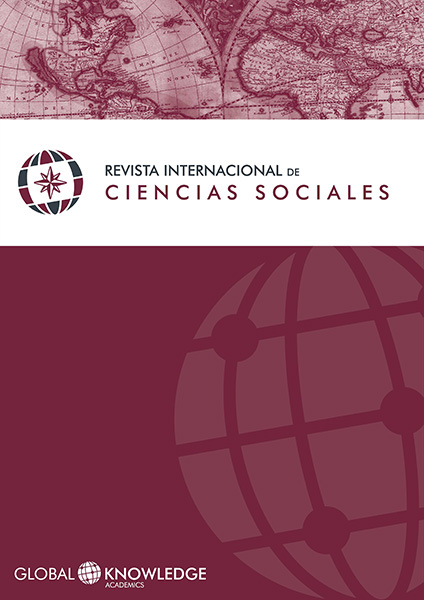The Internacionalization of Higher Education: An Analysis of the Science without Borders Program in Brazil, paths and challenges
DOI:
https://doi.org/10.37467/gka-revsocial.v3.1138Keywords:
Education, Globalization, Higher EducationAbstract
This article discusses the Science without Borders (Ciência sem Fronteiras) program, a student exchange program between Brazil and other countries, which has been implemented by the Brazilian government as an education public policy. This is a scholarship program funded by "the Brazilian government, aiming to send 101,000 Brazilian students abroad to take part in undergraduate sandwich courses and PhD sandwich programs, as well as doctors, to study in the fields of science, technology, engineering, mathematics and creative industry in top universities worldwide" (Brazil/2012). Currently, there are many Brazilian students in Europe and the USA. The program also intends to attract foreign researchers who are interested in working in Brazil. The estimated cost of the program is BRL$ 3.2 billion (USD 1.6 billion) (Castro et al., 2012). The exchange program aims to sow the seeds of what could revolutionize the R&D system, since Brazilian students and researchers will be exposed to an environment of high competitiveness and entrepreneurship (Brazil/2012). This research draws on quantitative data (MEC, 2012) and qualitative analysis. It investigates the relationship between the production of knowledge and internationalization as well as the possible impacts for Brazil of a greater inclusion, with competence and competitiveness, into a globalized world. This study also carries out a critical analysis. Brazil needs to internationalize its universities and the Science without Borders program may bring potential contributions on the topic.
Downloads
Global Statistics ℹ️
|
640
Views
|
203
Downloads
|
|
843
Total
|
|
References
Bonitatibus, Suely. G. (1989). Educação comparada : conceito, evolução e método. São Paulo: EPU.
Brasil. (2013a). Ministério da Ciência, Tecnologia e Inovação; Ministério da Educação. Ciência sem fronteiras . Disponível em: http://www.cienciasemfronteiras.gov.br/web/csf/metas Acesso em: 30/maio/2013.
Brasil. (2013b). Ministério da Ciência, Tecnologia e Inovação; Ministério da Educação. Ciência sem fronteiras . Painel de Controle do Programa Ciência sem Fronteiras. Disponível em: http://www.cienciasemfronteiras.gov.br/web/csf/painel-de-controle. Acesso em: 30/junho/2013.
Brasil. (2013c). Ministério da Ciência, Tecnologia e Inovação; Ministério da Educação. Ciência sem fronteiras. Decreto no . 7.642, de 13 de dezembro de 2011. Disponível em: http://www.cienciasemfronteiras.gov.br/documents/214072/0/Decreto+n%C2%BA+7642-Ci%C3%AAncia-sem-Fronteiras.pdf. Acesso em: 15/julho/2013.
Brasil. (2013d). Ministério da Ciência, Tecnologia e Inovação; Ministério da Educação. Ciência sem fronteiras. Pesquisador Visitante Especial. Disponível em: http://www.cienciasemfronteiras.gov.br/web/csf/pesquisador-visitante-especial. Acesso em: 30/junho/2013.
Brasil. (2013e). Ministério da Ciência, Tecnologia e Inovação; Ministério da Educação. Portaria Interministerial n. 1 de 9 de janeiro de 2013. Diário Oficial da União, sexta-feira, 11 de janeiro de 2013, p. 24. Disponível em: http://www.cienciasemfronteiras.gov.br/documents/214072/0/MEC_MCTI_institui+%C3%A1reas+e+temas+priorit%C3%A1rios_Ci%C3%AAncia+sem+Fronteiras.pdf. Acesso em: 30/junho/2013.
Carnoy, Martin. (2005). “Globalization, educational trends and the open society”, OSI Education Conference 2005: Education and open society: a critical look at new perspectives and demands, Education Support Program. Disponível em: http://www.opensocietyfoundations.org/sites/default/files/carnoy_english.pdf. Acesso em: 22/julho/2013
Carnoy, Martin; Castells, Manuel; Cohen. Stephen & Cardoso, Fernando-Henrique. (1993). The New Global Economy in the Information Age . University Park. PA: Pennsylvania State University Press. DOI: https://doi.org/10.1007/978-1-349-13224-9
Castells, Manuel. (1999). A era da informação: economia, sociedade e cultura, vol. 3, São Paulo: Paz e terra, 411-439.
Castro, Claudio M.; Barros, Hélio; Ito-Adler, James; Schwartzman, Simon. (2012). “Cem mil bolsistas no exterior”. Interesse Nacional, abril/jun 2012, 25-36.
Ioanonnidou, Alexandra. (2007). “A comparative analysis of new governance instruments in the transnational educational space: a shift to knowledge-based instruments?” European Educational Research Journal, 6(4), 336-347. Disponível em: http://dx.doi.org/10.2304/eerj.2007.6.4.336. Acesso em: 22/jan/2013. DOI: https://doi.org/10.2304/eerj.2007.6.4.336
Lucchesi, Martha A. S. (2011). “La Universidad Internacional en América Latina: un Nuevo Paradigma para el Siglo XXI”. Formación Universitária 4, 25-36. DOI: https://doi.org/10.4067/S0718-50062011000100005
Lucchesi, Martha A. S. (2008). “Education and Social Policy in Brazil: Alternatives to Higher Education”. The International Journal of Interdisciplinary Social Sciences , v. v.3, 49-58. DOI: https://doi.org/10.18848/1833-1882/CGP/v03i02/52532
Lucchesi, Martha A. S. (2002). University at the threshhold of the third millennium: challenges and tendencies. São Paulo: Leopoldianum.
Lucchesi, Martha A. S.& Malanga, Eliana B. (2010). “Perceptions of higher education in Brazil in the first decade of the third millennium”. US-China Education Review 7, 31-44.
Lucchesi, Martha A. S.& Malanga, Eliana B. (2009). “Post-Disciplinarity: Brazilian Universities Ethos in the Society of Knowledge”. Journal of the World Universities Forum 2, 185-198. DOI: https://doi.org/10.18848/1835-2030/CGP/v02i01/56559
Downloads
Published
How to Cite
Issue
Section
License
Those authors who publish in this journal accept the following terms:
-
Authors retain copyright.
-
Authors transfer to the journal the right of first publication. The journal also owns the publishing rights.
-
All published contents are governed by an Attribution-NoDerivatives 4.0 International License.
Access the informative version and legal text of the license. By virtue of this, third parties are allowed to use what is published as long as they mention the authorship of the work and the first publication in this journal. If you transform the material, you may not distribute the modified work. -
Authors may make other independent and additional contractual arrangements for non-exclusive distribution of the version of the article published in this journal (e.g., inclusion in an institutional repository or publication in a book) as long as they clearly indicate that the work was first published in this journal.
- Authors are allowed and recommended to publish their work on the Internet (for example on institutional and personal websites), following the publication of, and referencing the journal, as this could lead to constructive exchanges and a more extensive and quick circulation of published works (see The Effect of Open Access).













